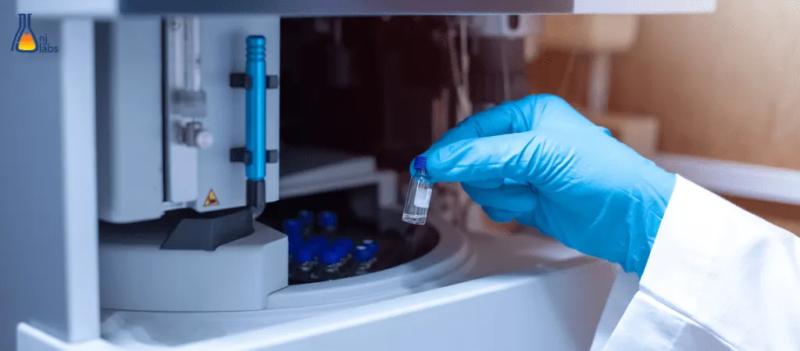Essential Applications of HPLC in the Pharmaceutical Industry

High-Performance Liquid Chromatography (HPLC) is a critical analytical instrument in the pharmaceutical industry. Its ability to separate, identify, and quantify compounds with high precision and accuracy makes it indispensable in various stages of drug development and manufacturing. From ensuring the quality and safety of pharmaceutical products to supporting research and regulatory compliance, HPLC’s applications are diverse and essential. This post offers you insights on the essential applications of HPLC in the pharmaceutical industry.
From Lab to Market: How HPLC Advances Drug Development
Below are a few common applications of HPLC in drug development
- Drug Development and Formulation: HPLC plays a crucial role in the early stages of drug development. It analyzes the chemical composition of drug candidates, helping researchers understand their properties and behavior. This information is vital for formulating drugs in various therapeutic areas. HPLC helps identify the optimal formulation by analyzing the stability, solubility, and compatibility of different ingredients.
- Quality Control and Assurance: Ensuring the quality of pharmaceutical products is paramount, an
d where HPLC can be the gold standard for quality control and assurance. It is used to verify the identity, purity, and potency of active pharmaceutical ingredients (APIs), excipients and finished products following the USP and other test methods. - Method Development, Verification and Validation: In the pharmaceutical industry, your analysis requires method development, verification, and/or validation to ensure and demonstrate accuracy, precision, specificity, and robustness depending on if your sample is raw material (API or excipients) or finished products. High-Performance Liquid Chromatography (HPLC) is often used for this analysis. If a USP test method is available, it is usually verified; otherwise, new HPLC methods are developed and validated. Method development involves selecting appropriate columns, mobile phases, and detection methods for optimal separation and quantification of compounds. Validation/Verification ensures the method consistently produces reliable results complying with industry standards and regulatory requirements.
- Research and Development: In pharmaceutical R&D, HPLC is used extensively to analyze chemical reactions, monitor synthetic processes, and identify reaction intermediates and products. It supports the development of new drugs by providing detailed insights into the chemical structure and purity of compounds. HPLC’s versatility and precision make it an invaluable tool for pharmaceutical research.
- Stability Testing: Stability testing is a critical aspect of pharmaceutical development, ensuring that drugs maintain their efficacy, safety, and quality over time. HPLC is used to conduct stability studies by analyzing the degradation products formed under various environmental conditions, such as temperature, humidity, and light. This information helps determine the shelf life and storage conditions of pharmaceutical products.
- Bioavailability and Bioequivalence Studies: HPLC is employed during bioavailability and bioequivalence studies. It compares the absorption and distribution of a drug in the body. These studies are crucial for generic drug approval and understanding new drug pharmacokinetics. HPLC enables the accurate measurement of drug concentrations in biological samples, providing critical data on the drug’s performance.
- Impurity Profiling: Impurities in pharmaceutical products can affect their safety and efficacy. HPLC is widely used for impurity profiling, identifying and quantifying impurities and degradation products in APIs and finished products. This ensures that impurities are within acceptable limits, safeguarding patient health and complying with regulatory standards.
- Cleaning Validation: Equipment and facilities must be cleaned to prevent cross-contamination between different production batches in pharmaceutical manufacturing. HPLC is used in cleaning validation to detect and quantify residual APIs or cleaning agents on equipment surfaces. This ensures that cleaning procedures are effective and that subsequent batches are not contaminated.
- Regulatory Compliance: Regulatory agencies, such as the FDA , require rigorous testing and documentation of pharmaceutical products to ensure their safety and efficacy. HPLC is one of the
a key instruments for generating and analyzing the required data for regulatory submissions. Its reliability and accuracy make it the preferred chromatography technique for compliance with regulatory standards. - High-Performance Liquid Chromatography (HPLC) is an essential analytical technique in the pharmaceutical industry. Its applications span drug development, quality control, stability testing, bioavailability studies, impurity profiling, cleaning validation, and regulatory compliance. The precision, accuracy, and reliability of HPLC ensure that pharmaceutical products are safe, effective, and of the highest quality. As the pharmaceutical industry evolve, HPLC will remain a cornerstone of testing, driving innovation and ensuring patient safety.
NJ Labs – Your Trusted HPLC Partner
NJ Labs offers expert HPLC analysis and testing services, ensuring the highest standards of precision and accuracy in pharmaceutical applications. With advanced technology and a commitment to quality, NJ Labs supports manufacturers, researchers, and regulators in delivering safe, compliant, and high-quality pharmaceutical products. Partner with NJ Labs for reliable HPLC solutions that meet your analytical needs
Post Your Ad Here
Comments